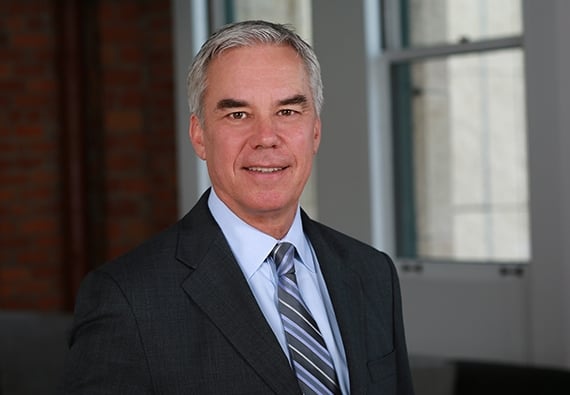Coronavirus and the Workplace: Key Legal Updates for Employers
With the spread of COVID-19 and the rapidly evolving federal, state, and local government response, it can be difficult for employers to keep up with their rights and obligations. This week, California’s Governor Gavin Newsom relaxed state law notice requirements for employer layoffs during this time. Meanwhile, the federal government has enacted new laws designed to support businesses and employees. The City of San Francisco has announced financial support for employers to provide additional sick leave. These new developments are summarized below.
California Relaxes WARN Act Notice Requirements
Under normal circumstances, California’s Worker Adjustment and Retraining Notification (“WARN”) Act requires covered employers to give 60 days’ notice regarding any mass layoff affecting 50 or more employees within a 30-day period, or any plant closing. The federal WARN law contains a similar notice requirement. Although the federal WARN law contains an exception for unforeseeable business circumstances, the California WARN law contains no such exception.
On March 17, 2020, Governor Gavin Newsom signed an executive order relaxing California WARN law notice requirements for layoffs resulting from COVID-19 through the end of the State of Emergency. While employers still must provide notice to affected employees, it must only be “as much notice as is practicable” while providing a brief statement of the basis for reducing the notification period. The layoff or termination must result from COVID-19-related business circumstances that were not reasonably foreseeable at the time that notice would have been required. The notice must also inform terminated employees of their potential eligibility for unemployment insurance. Employers should consult legal counsel to determine whether any workforce reduction is covered by state or federal WARN law.
The Federal Government Adopts the Families First Coronavirus Response Act
On March 18, 2020, the federal Families First Coronavirus Response Act was signed into law, requiring employers with fewer than 500 employees to provide paid FMLA leave and paid sick leave for defined purposes relating to Coronavirus. The four main provisions that are relevant to employers are as follows:
- Emergency Paid Sick Leave: Covered employers must provide two weeks of paid sick leave at the employee’s regular rate for specified purposes related to Coronavirus: to quarantine or isolate under doctor’s or governmental orders; to seek a diagnosis or preventative care; to care for someone who has been quarantined; or to care for a child whose school or place of care is closed, or if the child care provider is unavailable. The maximum amount paid to the employee is capped depending on the purpose for which the leave is taken.
- Emergency Paid FMLA Leave: Covered employers must provide 12 weeks of job-protected FMLA leave to care for a child if the child’s school or place of care has been closed or if the child care provider is unavailable due to Coronavirus. The first 10 days are unpaid (unless the employee elects to use accrued paid time off), and the remaining 10 weeks must be paid at no less than 2/3 the employee’s regular rate, subject to a cap. Some exemptions are available for small employers.
- Employer Tax Credits: The law offers refundable tax credits for certain employers to offset the cost of providing paid emergency sick leave or paid FMLA leave.
- Emergency Unemployment Insurance Stabilization: The law provides federal funding for emergency grants to states for processing and paying increased unemployment insurance benefits. Some of the funds are intended to ensure employees have access to benefits, including requiring employers to provide notification of eligibility, ensuring that employees have multiple methods to apply for benefits, and providing information to applicants about how to ensure their application for benefits is processed successfully.
San Francisco Will Pay for Additional Five Days of Sick Leave for Workers
On March 16, 2020, San Francisco Mayor London Breed announced the Workers and Families First Program, which includes $10 million in funding to private employers to provide an additional five days of sick leave to workers beyond the employers’ existing policies. All San Francisco employers are eligible, and 20% of the funds are reserved for employers with 50 or fewer employees. The City will contribute up to one week (40 hours) at $15.59 per hour (the San Francisco minimum wage) per employee (a total of $623), with the employer responsible for paying the difference between the minimum wage and the employee’s regular rate. More information can be found in the City’s press release, here: https://sfmayor.org/article/mayor-breed-announces-plan-provide-paid-sick-leave-workers-impacted-coronavirus.
Reporting Time Pay Not Required When Authorities Recommend Ceasing Operations
California law normally requires that, if an employee reports for their regularly scheduled shift but is required to work fewer hours or is sent home, the employee must be compensated for at least two hours, but no more than four hours, of reporting time pay. Reporting time pay does not apply when operations cannot commence or continue when recommended by civil authorities. Thus, when employees are sent home because government officials recommend that businesses shut down (such as the current situation with gyms, bars, restaurants, and other establishments), reporting time pay is not required.
Employment Development Department Work Sharing Program is an Alternative to Layoffs
California’s Employment Development Department (EDD) has a Work Sharing Program for which employers may apply if reduced production, services, or other conditions cause them to seek an alternative to layoffs. The Program allows for the payment of benefits to employees whose wages and hours have been reduced, while allowing employers to retain employees during a slowdown without having to lay them off. The Program is flexible such that employees may be rotated so different employees have reduced hours and wages each week. Employers who are interested in the Work Sharing Program should visit the EDD website for eligibility criteria and application information.
This is a difficult and complicated time for many employers. As conditions, laws, and guidance evolve, employers should consult with counsel to ensure compliance with all of the applicable legal authorities. Additional resources for California employers can be found here.


